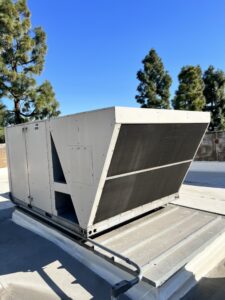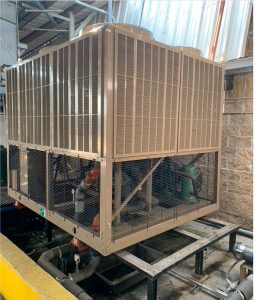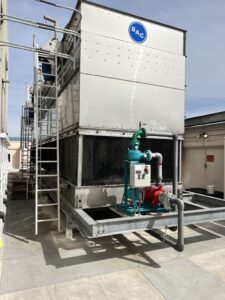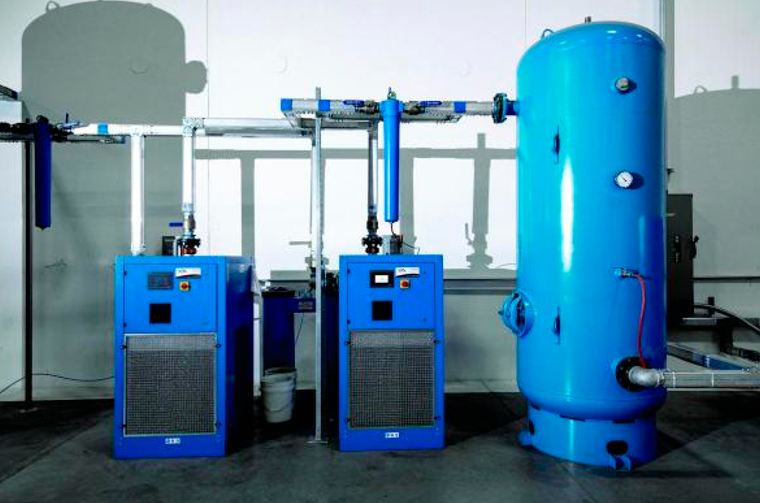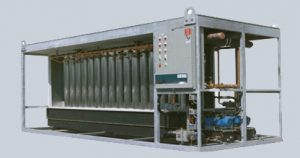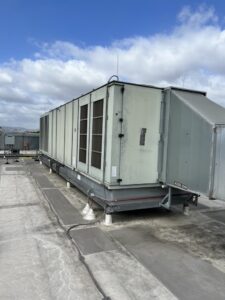The industrial process chillers serve as the industrial backbone, in food processing, pharmaceuticals, and all other applications, including those. They are involved with the monitoring of temperature of manufacturing machines and production equipment and this ensures that critical processes take place without any ledge. However, do you really know what industrial process chillers are? In this blog, we would like to take a closer look at the industrial chiller process, examining their types, functions, and factors that need to be addressed before purchasing. Alongside this, maintenance schedule for efficient and long chiller operation will be discussed.
Are you giving enough attention to your chiller’s maintenance? Read on to find out more.
Is your Industrial chiller running smoothly? Regular maintenance is the key to keeping your operations at their best. Don’t wait for breakdowns to disrupt your production.
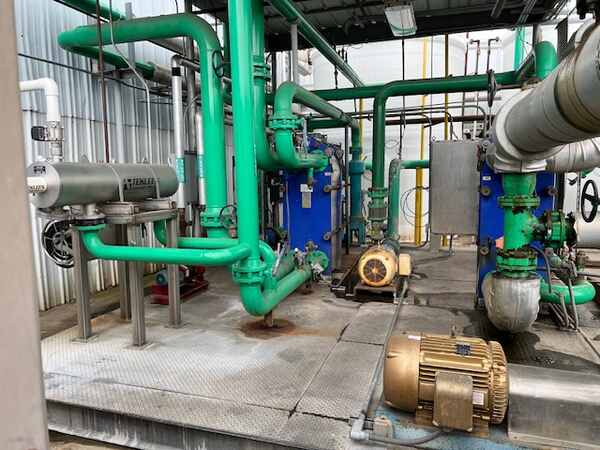
Understanding Industrial Process Chillers and their importance
How do industrial process chillers operate, and what are they? Process chillers are refrigeration units intended to take heat out of production and manufacturing equipment. They accomplish this by chilling water or oil and then pumping it to the equipment, where it cools down by being circulated through the process machine. They are frequently utilized in sectors of the economy where controlling temperature is essential to maximizing output and quality of output.
Industrial process chillers, which are utilized in temperature control of many production operations involving machines, are an indispensable part of a factory. They are used in many sectors like data centers, wineries, breweries, automotive, healthcare, pharmaceutical, and aircraft factory. They are the key in the context of stable climate. Besides that, devices like MRIs, CT scanning, and food producing can be associated with industrial process chillers.
Types of Industrial Process Chillers
Air-Cooled Chillers: These chillers utilize air as the primary medium of rejection of the heat. They are suitable for applications as varied as small to medium-sized.
Water-Cooled Chillers: Water chillers have their operating principle based on using water for heat rejection. They are basically more efficient but need to use either the cooling tower or the water source. the industrial-scale water chillers are used for large-scale water-cooled chillers.
Evaporative-Cooled Chillers: These chillers are using the hybrid air- and water-cooling approaches to release the stored heat. Therefore, the performance is enhanced. Frequently these ones play a significant role in industrial systems which are large enough.
Scroll, Screw, or Centrifugal Compressors: Process chillers vary in their type of compressor which can be either fundamental or in terms of efficiency.
Air-cooled chillers, which use ambient air for the cooling process, may be easily installed and provide flexibility in design and installation. However, coal-fired chillers use water which provides efficient cooling in highly-heated environments. Rare-earth metals exist in these two classes, and the applicability depends on the particular industrial demands.
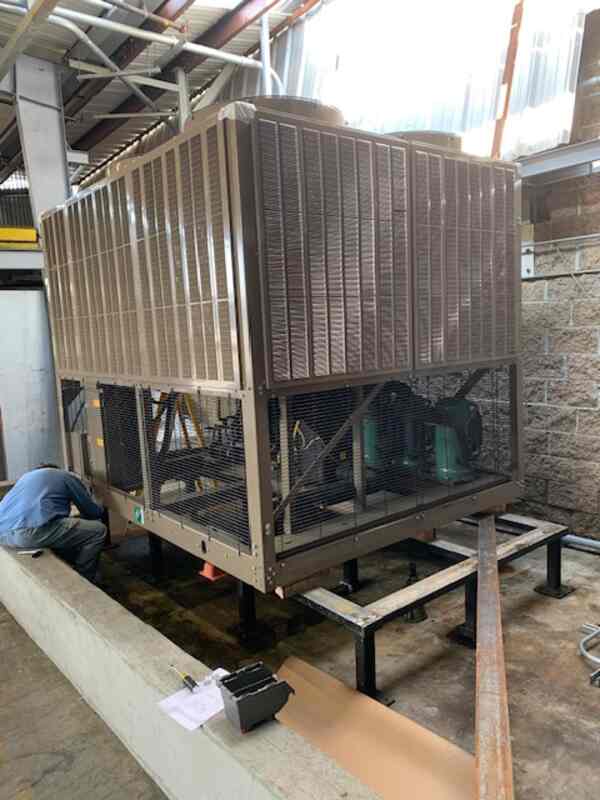
Significance of Process Chillers
Process chillers play a vital role in numerous industries for several reasons:
Precision Temperature Control: They guarantee accurate temperature control during manufacturing, which is essential for product quality, and they protect the equipment against possible overheating and operational disruptions so that continuous production is guaranteed.
Energy Efficiency: One of the major features of modern process chillers is their energy saving capacity, and this gives the companies an opportunity to cut down their operating costs.
Increased Productivity: Through the application of conducive temperatures the chillers prevent losses due to the systems equipment failure or fluctuations in temperature.
Extended Equipment Lifespan: It keeps the sensitive equipment from overheating which prolongs the life of the machine and decreases the repair costs.
Environmental Considerations: Process chillers can be equipped with eco-friendly refrigerants which lowers their incidence on the earth.
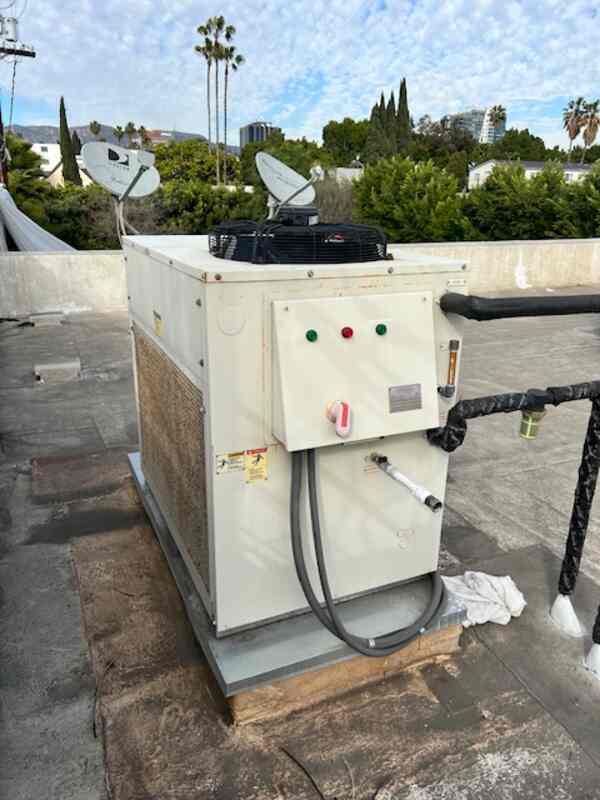
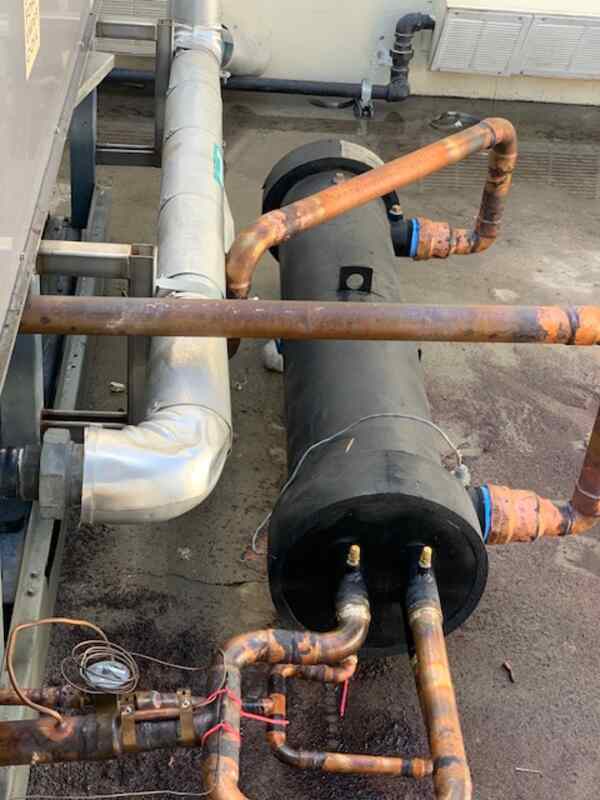
The Crucial Role of Maintenance and Repair for Industrial Process Chillers
Industrial process chillers are the heroes at work without notice but for the most of the manufacturing and industrial facilities. They are all critical to maintaining the ideal temperature for manufacturing process, producing consistently high-quality goods, and avoiding costly disasters. Unfortunately, the maintenance and repair regimes are usually neglected for these vital components. The role of scheduled maintenance and timely repairs for production process chillers will be described below.
1.) Maximizing Efficiency: Efficiency is the key element in any functioning of any industrial organization. Industrial process condensers are not different from other application. They work at optimum temperatures and maximum efficiency if maintained well. They reduce energy consumption as well as running costs. Regular maintenance like cleaning condenser coils and water-cooled systems Cooling Towers, screening refrigerant levels to be able to keep the chiller running well without any unnecessary energy spend during functions when only the desired cooling capacity is required.
2.) Prolonging Equipment Lifespan: Industrial chillers a huge capital expenditure estimate. The durability of this investment is synonymous to the routine maintenance and timely repairs. Thus, this will ensure the longevity of this product. The fridges which go through neglect are likely to experience break downs that require a pricey replacement. Fast response to small issues helps you to be able to have your chiller system last longer, and thus reconcile more money.
3.) Preventing Costly Downtime: A downtime period in the factory may cause harm to the business. The lack of any anticipatory disruption in the cooling can cause production faults, completion delays and financial malfunctioning. The maintenance service maintenance helps to prevent major problems from occurring and therefore, a machine breakdown in the making process of a product should not come to one as a surprise.
4.) Ensuring Product Quality: Industries depend on excellent control of temperature ( precision temperature control) to ensure product quality. Temperature is included in all these areas such as food and beverage, pharmacological, plastic, breweries, and wineries where it may lead to either a low quality of the product or even safety problems. The coolers that are in good shape provide the stable and the reliable feeling of temperature, therefore, your products will have their own standards of quality.
5.) Compliance with Environmental Regulations: Industrial process chillers nearly inevitably possesses the refrigerants that can do harm to the environment if not handled habitually. Routine maintenance involves detecting a refrigerant leakage issue as soon as possible so as to eliminate the environmental impact, thereby ensuring a compliance with the existing environmental regulations.
6.) Safety First: One must make sure the safety is the number 1 objective in such boundaries. Chillers with no proper maintenance may bring safety risks, e.g. electrical faults, cooling liquid leaks, etc. Frequent lighting checks and repair ensure that these dangers are captured and corrected thereby maintaining a better working environment in which your employees will be safer.
Industrial process chillers are usually used to control everything and to obtain high product quality. Not paying attention to a chiller system schedule leads to expensive disruptions, lower efficiency and possible safety risks. Via having a comprehensive maintenance checklist and by performing routine inspections regularly, you will enhance your industrial process chiller’s lifespan, maintain lower energy consumption, and guarantee the superior operations of your operations. Taking care to follow the manufacturer’s recommendations, as well as considering working with professional chiller maintenance services companies like ICE BEAR INC to optimize the dependability and efficiency of your chiller system. A properly maintained chiller will ensure the processes hold temperature and the operations go on as scheduled.
Industrial Process Chiller Maintenance Checklist
1.) Regular Inspections: Schedule preventive inspections to detect faulty parts, leaked refrigerant, and worn components. Make sure that the compressor, evaporator coils, pipes, and the involved connections are accurately cleaned.
2.) Cleaning: A clean chiller, free of dust and debris, is essential for effective operation. Clean the condenser coils and water-cooling system coils often to get the maximum effect from heat transfer.
3.) Refrigerant Levels: Monitor and maintain the level of refrigerant properly. As a result of the refrigerant leak, the equipment may be less efficient and at risk for damage.
4.) Electrical Components: Inspect electricals connections, relays, and controls for signs of wear, overheating, or breakdown. Fasten all loose connections and repair failing parts as quickly as possible.
5.) Oil Analysis: Oil analysis should be conducted if the chiller employs oil-lubricated compressors in order to identify contamination or wear. The oil needs to be changed following the manufacturer’s recommendations.
6.) Water Treatment: Implement water treatment for water-cooled chillers which will prevent scaling, corrosion, as well as biological growth in the system. Frequent tests and treatment for water quality will solve the issue.
7.) Vibration Analysis: Use sensors to detect vibrations in order to detect the problems with the compressor or other moving parts. For example, equipment failure can be triggered by excessive vibration.
8.) Temperature and Pressure: Regularly take and record the temperatures and pressures of the operating conditions. Any divergence from the standard ought to be investigated and rectified.
9.) Safety Measures: Ensuring that safety equipment including pressure relief valves, overpressure and low pressure switches, and alarm systems should be maintained and properly set to protect the equipment against overpressure and other potentially dangerous conditions.
10.) Documentation: Create clear documentation that would outline all maintenance activities, including performed repairs and suggested measures.
To ensure the efficient functioning of process chillers, scheduling routine inspections, cleaning, and servicing of various chiller components is essential. Proper maintenance not only extends the lifespan of the chiller but also reduces the risk of unexpected breakdowns. Safety and compliance with regulations are ensured by having qualified technicians perform any necessary repairs or maintenance.
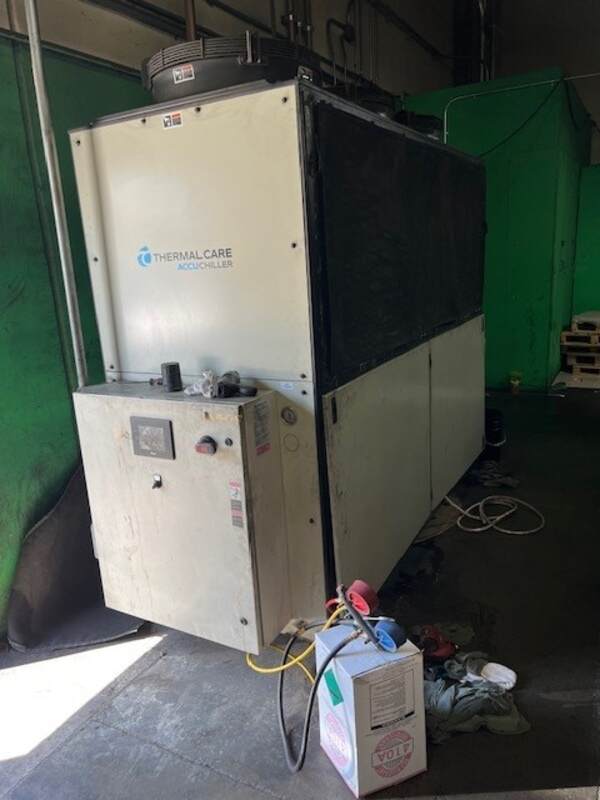
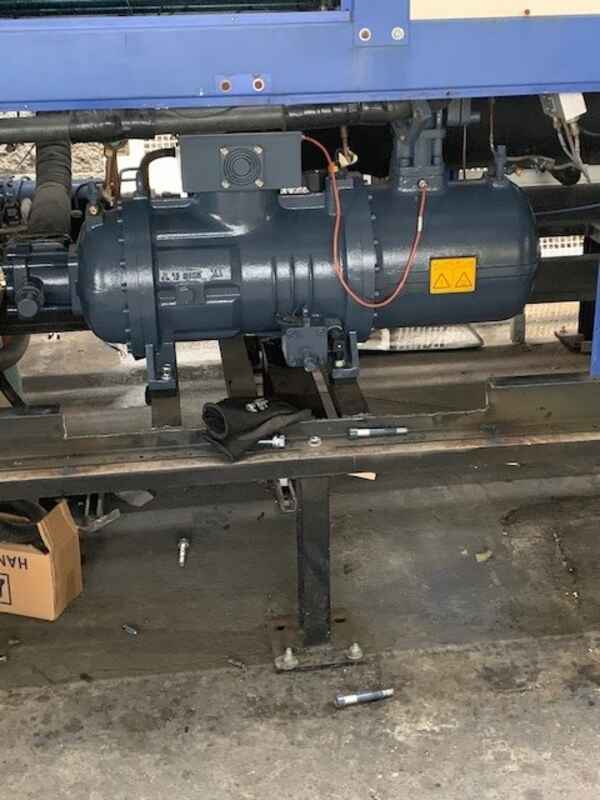
Schedule your next Industrial Process Chiller inspection with us!
Arranging maintenance agreements with professional providers means that scheduled checks and repairs are conducted when necessary. It is advisable for technicians to conduct frequent checks of refrigerant levels and system pressures in order to detect any issues before they evolve into more significant problems. Performing regular suspension, breakdowns can be prevented, and the lifetime of your process chiller will be lengthened. With the guidance of professional technicians or a chiller specialist the repair and maintenance of equipment can be achieved successfully.
Scheduling maintenance during off-peak times will minimize operations disrupts.
Industrial process chillers, which are ubiquitous in many industries now, greatly contribute to preserving product quality and enhancing process efficiency. And failing to attend to those maintenance issues could result in increased expenses in production, as well as machine malfunctioning and risky situations. Through Regular Maintenance and prompt repairs of needed repairs, you will guarantee the chiller performance and its own longevity and uninterrupted the general operation of your facility. This is an intelligent investment from which the benefits include a reduced cost of operation, increased productivity, as well as the peace of mind which makes maintenance and repair for industrial process chillers a core element of the success of industrial operations.
Keep your Operations Running Smoothly – Trust our Chiller Experts.

